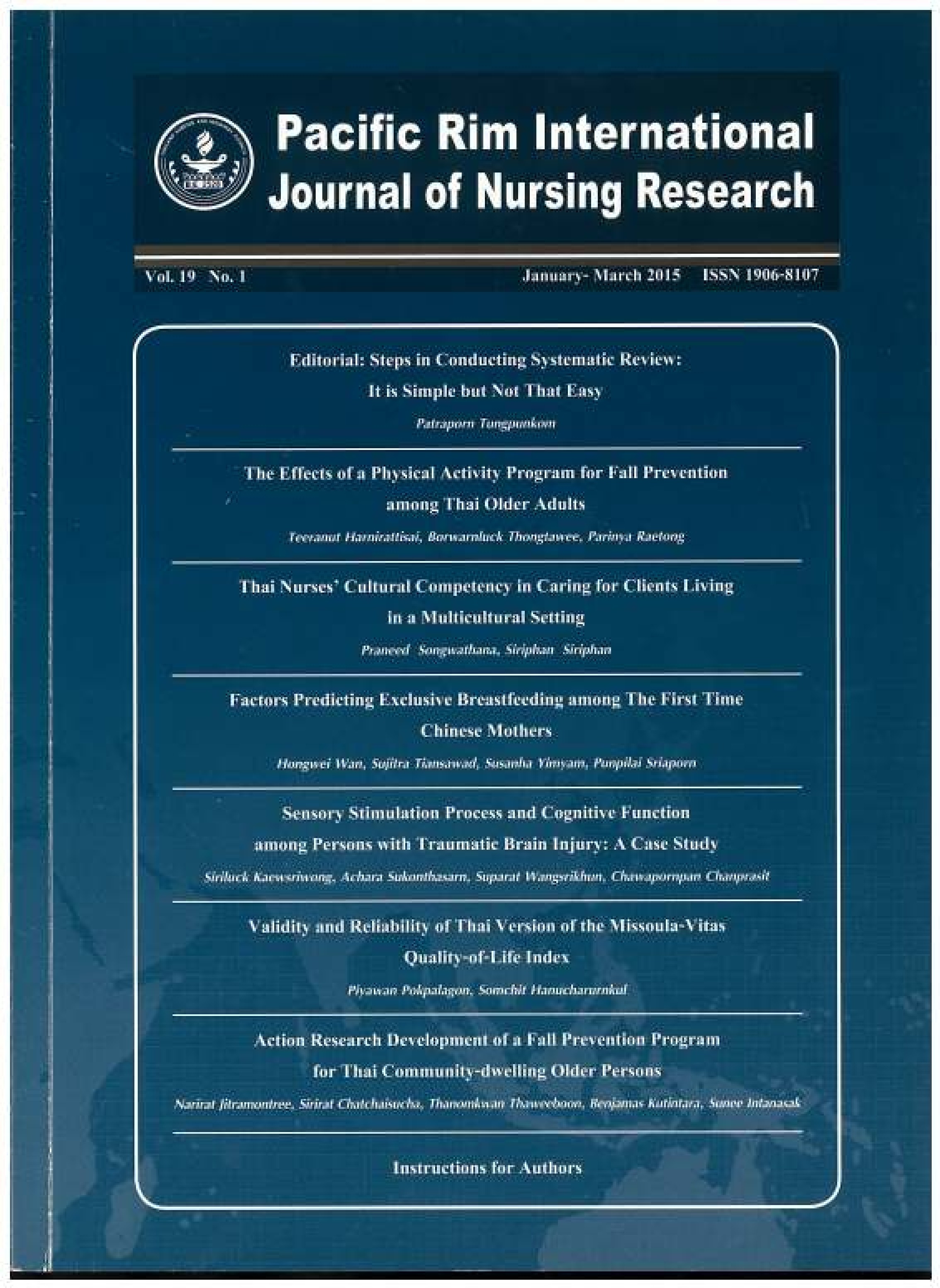Sensory Stimulation Process and Cognitive Function among Persons with Traumatic Brain Injury: A Case Study
Keywords:
Case study, Caregivers, Cognitive function, Rehabilitation, Sensory stimulation, Sensory stimulation process, Traumatic brain injuryAbstract
Severe traumatic brain injury alters cognitive function and impacts on self-reliance in the long-term but sensory stimulation may facilitate cognitive rehabilitation. This case study involved a convenience sample of two persons with severe traumatic brain injury admitted to two hospitals in Central Thailand who could possibly benefit from sensory stimulation in hospital and later at home. Their six family caregivers also participated in the study. Data were collected via in-depth interviews, observation, and a reflective journal and three cognitive assessment instruments. The latter were: The Glasgow Coma Scale, The Rancho Los Amigos Scale and The Sensory Modality Assessment and Rehabilitation Technique. Results revealed that the sensory stimulation processes proved efficient and were: readiness preparation for caregivers as providers of sensory stimulation in hospital and later the home environments; design and application of sensory stimulation; and monitoring for cognitive function as evidenced by sensory stimulation responses. Findings provide vital information to nurses, healthcare providers, and family members about: the success of sensory stimulation given by family providers, especially the parents; the intimate environment, particularly the home environment; the sensory stimulation design based upon the existing level of cognitive function; and maintaining the provider’s motivation through their ability to notice the positive responses towards the stimulation. In addition,close monitoring of the responses throughout the sensory stimulation process proved more appropriate than using the existing cognitive function assessment scale. Results also revealed possible effects of sensory stimulation on cognitive function improvement with no observable negative consequences in the two cases studied. Further testing of this program is required with larger samples, and the results of these may help to develop future nursing practice guidelines in Thailand regarding caring for people with traumatic brain disorder.
Downloads
Published
How to Cite
Issue
Section
License
Copyright: The Pacific Rim International Journal of Nursing Research, Thailand Nursing & Midwifery Council has exclusive rights to publish, reproduce and distribute the manuscript and all contents therein.








.png)



